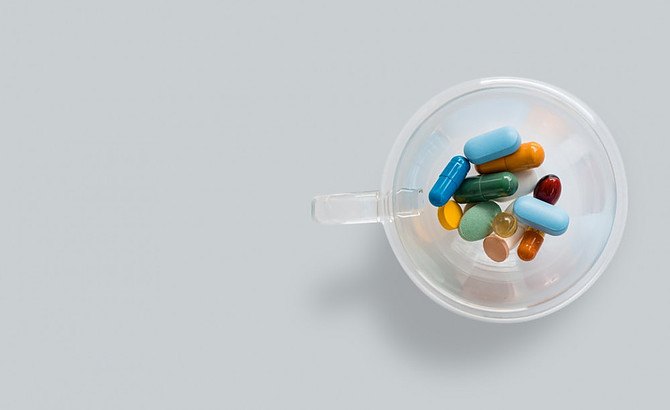We all need vitamins from time to time, depending on health needs. People with diabetes need vitamins even more importantly. But, which vitamins diabetics should avoid? That what we are going to find out in this article.
Vitamins and supplements can provide a great contribution to your health. Different people need different vitamins and supplements for various reasons. Some might not actually need to supplement a diet, while some go on supplements due to health recommendations. In all, it is still worthy of note that everyone needs a dose of vitamins, both diabetics and non-diabetics. This is also true because we encounter different vitamins in our daily meals.
What are Vitamins?
Vitamins are organic substances that are present in small amounts in natural foods. Since the vitamin is an organic compound, it means that it has a carbon constituent.
Vitamins have an important role in our health, and it includes;
- They are essential for the eye
- They help in producing enzymes that help in breaking down blood sugar
- They are essential for the growth and development of body cells, and they help in metabolizing food
- They help in producing energy and hormones
- They are vital for the formation of red blood cells
- They help the body to metabolize proteins, fats, and carbohydrates, and they also help in producing the structural protein keratin
- They help in making DNA and RNA
- They help in maintaining a good nervous system
- They contribute to the production of collagen wound healing and bone formation.
- They help in the healthy mineralization of bones
- They help in blood clotting
When there is too little amount of vitamin, there is an increased chance of having health issues.
There are 13 recognized vitamins, and they are Vitamins A, B1, B2, B3, B5, B6, B7, B9, B12, C, D, E, K.
The below I note sources of each vitamin type.
Vitamin A – sourced from squash, spinach, fish, soy milk, milk.
Vitamin B1 – sourced from pork, oatmeal, brown rice, vegetables, potatoes, liver, eggs
Vitamin B2 – sourced from dairy products, bananas, popcorn, green beans
Vitamin B3 – sourced from meat, fish, eggs, vegetables, mushrooms
Vitamin B5 – sourced from meat, broccoli, avocado
Vitamin B6 – sourced from meat, vegetables, tree nuts
Vitamin B7 – sourced from egg yolk, liver, peanuts, leafy green vegetables
Vitamin B9 – sourced from pasta, bread, cereal, liver
Vitamin B12 – sourced from meat and other animal products
Vitamin C – sourced from fruits, vegetables, and livers
Vitamin D – sourced from fish, eggs, liver, mushrooms
Vitamin E – sourced from fruits, vegetables, nuts, and seeds
Vitamin K – sourced from leafy green vegetables like spinach, egg yolks, liver
Can There be an Overdosage of Vitamins?
Having stated the importance of vitamins, we should have it at the back of our mind that there is a limit to what we are allowed to take, especially if we are supplementing it.
Once health is involved, there is always a U-shaped curve. This means that taking too little or too much is bad for the health.
For example, too little vitamin A causes eye problems, while too much of it causes hair loss, dizziness, nausea, headaches, coma, and even death. Too little vitamin D can lead to osteoporosis, bone pain, muscle weakness, and heart diseases, while an excess of it can lead to hypercalcemia (build of calcium in the blood), nausea, vomiting, weakness, kidney problems, etc.
The essence of the examples is to buttress further the point that too little or too many vitamins can be harmful.
What are Supplements?
Dietary supplements are substances that add additional nutrients to diets. They come in the form of pills, capsules, powders, gel tabs, extracts, etc.
The US Congress in the Dietary Supplement Health and Education Act gave some characteristics of supplements. They include;
- Supplements have the sole intent of adding nutrients to a diet
- It is made up of one or more dietary ingredients, including vitamins, minerals, herbs, and other substances.
- It can be taken in various forms, either as a capsule, tablet, liquid, all taken through the mouth.
- It is not used as a conventional food or whole diet.
- It is always indicated as a dietary supplement.
Vitamins vs Supplements, What is the Difference?
There is always a misconception whether vitamins and supplements are the same. The answer is no.
However, the only major difference between vitamins and supplements is that supplements are products that add nutritional value to diets and promote health. And, vitamins are a type of supplement.
This means that vitamins are supplements, but supplements are not vitamins.
Should Diabetics (type 2) Take Vitamins?
Type 2 diabetes is a multifactorial disease, is often time linked to carbohydrate and fat metabolism, although other micronutrients can also contribute to this.
Carbohydrate and fat metabolism are jointly called energy metabolism. In type 2 diabetes, the major complication of this is an imbalance between free radicals and their control by natural antioxidants.
Most vitamins have antioxidant properties; therefore, they are very important in type 2 diabetics.
When Should Diabetics Consider Taking Vitamins?
Different conditions and risk factors can lead to the use of vitamins in states of type 2 diabetes. It is important to note that the use of a particular vitamin may be much-needed in some conditions compared to others.
We will quickly evaluate the different conditions that might require vitamins and the involvement of vitamins.
- In the condition of carbohydrate and lipid metabolism problems
In this condition, the most active form of vitamin A, retinol, is very much-needed. It comprises various chemical components with structural and functional similarities.
Vitamin A participates in various metabolic processes like genetic expression, cellular differentiation, fetal development, sight, taste, etc. There are other indications that vitamin A involves hepatic lipid metabolism, adipogenesis, and pancreatic B cell functioning.
- In the case of microalbuminuria
People with diabetes with the case of microalbuminuria (Albumin in the urine), are always found to have low Thiamine. This causes a spike in glucose and insulin levels.
Thiamine is very important in neuronal conductivity and transmission. Administering Thiamine in this condition will eventually lead to decreased glucose and insulin level.
- In the case of decreased insulin sensitivity and conductivity
When this is the case, the active form of vitamin B6, which is pyridoxal-5-phosphate, will be needed. This pyridoxal-5-phosphate is an aminotransferase that also acts as a coenzyme for glucose phosphorylase. It is used for the utilization of glycogen in the liver and muscles, making it an active participant in glucose metabolism.
Although vitamin B6 deficiency is not a direct contributor to type 2 diabetes, evidence shows that the deficiency might indirectly contribute to the increase in some of its complications.
- When the lipid concentration is high
Nicotine acid is generally essential for ATP production and increasing energy efficiency at the cellular level. It is a component of NADH (Nicotinamide adenine dinucleotide hydrogen) and NAD (Nicotinamide adenine dinucleotide).
In patients who supplemented Niacin, a decreased level of triacylglycerides and LDL cholesterol was found, and also an increased HDL cholesterol. Niacin, most times, is used as a drug for lowering lipids. Therefore, it is safe to say that Niacin reduced the effects of lipids on cardiovascular diseases.
Moreover, high lipid concentration can also lead to obesity if not controlled. So in this condition, vitamin E can also come in handy. Vitamin E has high antioxidant properties, making it suitable to combat the risks and complications of diabetes.
For people with diabetes supplementing with vitamin E, a positive effect has also been observed on hypertension, blood glucose, and antioxidant status.
- In a condition of cardiovascular disease
In this condition, folic acid or Vitamin B9 will be very much-needed. Folic acid participates in cell replications and also serves as a cofactor for transamination in converting amino acids, especially homocysteine, to methionine.
Cardiovascular diseases are sometimes linked to the deficiency of folic acid. This deficiency can also cause senile dementia and cancer in type 2 diabetics.
Another vitamin very much helpful in cardiovascular disease is vitamin D. Elderly type 2 diabetic patients are very prone to cardiovascular disease. This is partly because they have high chances of lacking vitamin D. Inadequate sun exposure, age-related alterations in absorption, synthesis, and metabolism of the vitamin are all contributing factors.
- In a condition of hyper-homocysteinemia
Type 2 diabetes is an oxidative stress disease. The deficiency of vitamin B12 and folic acid in people with diabetes is found to be associated with oxidative stress. That is about developing hyper-homocysteinemia.
Also, people with type 2 diabetes usually suffer from peripheral neuropathy. The development of this diabetic neuropathy has been linked to hyper-homocysteinemia. This means that deficiency of vitamin B12 and folic acid must be avoided at all costs.
- In a condition of the high level of oxidative stress
In this condition, vitamin C or Ascorbic acid will be required. Ascorbic acid serves as an antioxidant in collagen, neuropeptide, and carnitine synthesis. This leads to an increase in iron absorption and a decrease in histamine. In the case of high oxidative stress, the vitamin is always needed in larger quantities.
In newly diagnosed type 2 diabetic patients, vitamin C helps in reducing chronic periodontitis. Vitamin C also reduces anxiety levels in type 2 diabetics.
Why Should Diabetics Avoid Some Vitamin Supplements?
Although most vitamins have a good effect on diabetes management, some of them have a more harmful effect that outweighs their benefit. Diabetes is a disease with so many complications, and in different individuals, the levels are not the same.
For example, a vitamin that is good for a diabetic without a heart condition might not be good for someone with diabetes and a heart condition. The same applies to diabetics who are pregnant, and their case is often more complicated.
Let’s quickly look at vitamin supplements some people with diabetes should avoid.
- Chromium
Chromium deficiency has been found to lead to an increase in blood glucose level. So for some, taking chromium might go a long way in normalizing the blood glucose level. However, it is worth noting that only a little evidence is available to support this ‘fact’.
The exception to this is diabetics diagnosed with kidney disease. In this condition, chromium might further cause more damage to the kidneys. So, taking a critical look at this, you will find out that the harmful effect far outweighs the benefits. Since chromium will reduce the blood glucose level, it will further cause more damage to the kidneys. So, it will be wise to steer clear of it entirely if you have kidney disease.
- Vitamin E
Although vitamin E has been found to have good effects on blood glucose, hypertension, and antioxidant status of diabetics, there is a limit to its benefits. Some people with diabetes usually have heart diseases, and as such, they are placed on drugs. Some of these drugs for heart diseases have thinning properties.
Vitamin E and some other supplements have been found to affect the thinning properties of such drugs negatively.
This won’t be a welcome development for people with diabetes with heart diseases, as it will increase their bleeding risk. So, it is only safe to avoid vitamin E if you have diabetes with heart disease.
- Niacin
Niacin has been said to have a good effect on diabetics because it helps in reducing LDL cholesterol. However, it can also be harmful in some cases. Some other recent studies have suggested that niacin raises the blood glucose level. So, in this case, it is safe to say that the risks far outweigh the benefits.
What Does Research Say?
The vitamin which has raised more doubts and concerns on its efficacy on diabetes is vitamin E. Some researchers strongly believe that it should be avoided, while some others believe that it can be good for people with diabetes except those with heart diseases.
Early researches stated that there is a tendency for vitamin E to help in preventing heart diseases, but subsequent ones are not promising. For those without diabetes and heart diseases, this can be true, but for diabetics, it is not certain. It is believed that Vitamin E can stop heart diseases is because it functions as an antioxidant.
One of the major functions of vitamin E, according to research, is that it prevents the chemical reaction known as oxidation, which causes harm to the body, which explains the reason why it is called an antioxidant.
Another way by which vitamin E prevents heart diseases is by lowering LDL cholesterol. This enables it to prevent bad cholesterol from producing plaques which narrows the heart’s arteries. Because diabetes greatly increases the risk of heart diseases, it was very appropriate to recommend vitamin E for diabetics.
Recent studies conducted using clinical trials suggest that vitamin E tends to increase the risk of death by a small amount, while some others found no trace of death risk.
Moreover, some of the clinical trials found that there is also increased bleeding in some people with diabetes, especially those taking blood-thinning medications due to heart diseases.
Based on the result available now from research, it is not safe to recommend vitamin E for diabetics especially the ones with heart diseases. So until there is definite proof, it remains a speculation.
Which Vitamins Should Diabetics Not Take with Metformin?
Metformin is a type of antidiabetic drug called Biguanide. Its main use is for lowering blood sugar levels in type 2 diabetics. Metformin has often prescribed for type 2 diabetics because of its role in maintaining consistent blood sugar levels.
Additionally, metformin is also used in the treatment of side effects associated with the polycystic ovarian syndrome and nonalcoholic fatty liver disease. While taking metformin, you might experience side effects like headache, muscle pain, weakness, mild nausea, vomiting, diarrhea, and gas.
It is most confusing when it comes to determining if you should combine your metformin with vitamins. Metformin is one of the major drugs usually prescribed for people with diabetes, and vitamins are also highly recommended.
Metformin has not been discovered to have any negative interactions with vitamins in general.
However, metformin has a great interaction with is vitamin B 12. It was recently discovered that metformin causes a certain degree of deficiency of vitamin B 12.
Dr Keanat Mulla and colleagues conducted a study at Hucknall Medical in Nottingham. The researchers conducted an audit of Vitamin B12 screening and deficiency among female patients with type 2 diabetes who took metformin. It showed that amongst those tested, about 9.6 had vitamin B12 deficiency.
So, in such cases, vitamin B12 might be recommended.
Why Should Diabetics Not Take Those Vitamins?
It can be risky for people with diabetes because vitamin B 12 has a very critical role to play. It plays a role in the formation and maintenance of myelin sheath, which is a fatty acid substance that helps in protecting the central and peripheral nervous system. That is why nerve damage to the periphery is a common complication of diabetes, with symptoms ranging from numbness to pain and also a loss of balance and coordination.
This is even riskier because once the nerve is damaged, it cannot be fixed. All you can do is find ways to prevent further damage. So, in this case, it is recommended that you supplement B12 while still taking metformin. The supplement will help to treat the deficiency and prevent further nerve damage.
If you are taking metformin, ensure that your vitamin B12 level is between 190 and 900 nanograms per millimetre. Nevertheless, it is best to start supplementing once you notice that your B12 level is below 300mg/ml.
Conclusion
Having looked at the functions and importance of vitamins and supplements to everyone, especially for people with diabetes, we can conclude that they are essential for health.
If you have diabetes, talk to your health care provider to know the appropriate amount to use. Remember that over dosage and under dosage can be very harmful to your body.












